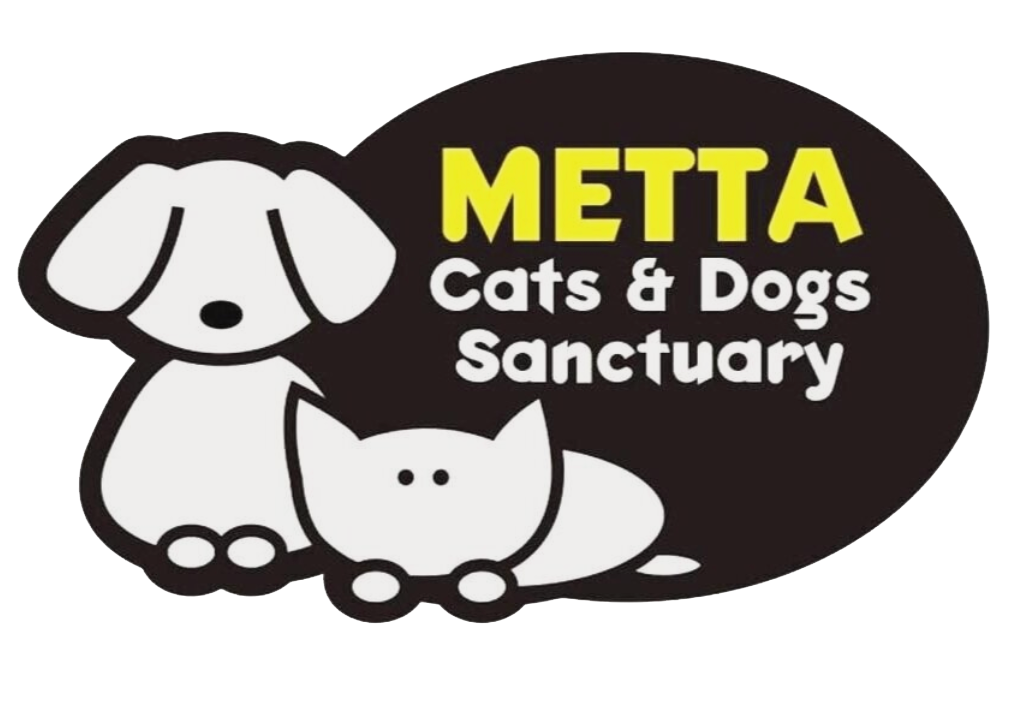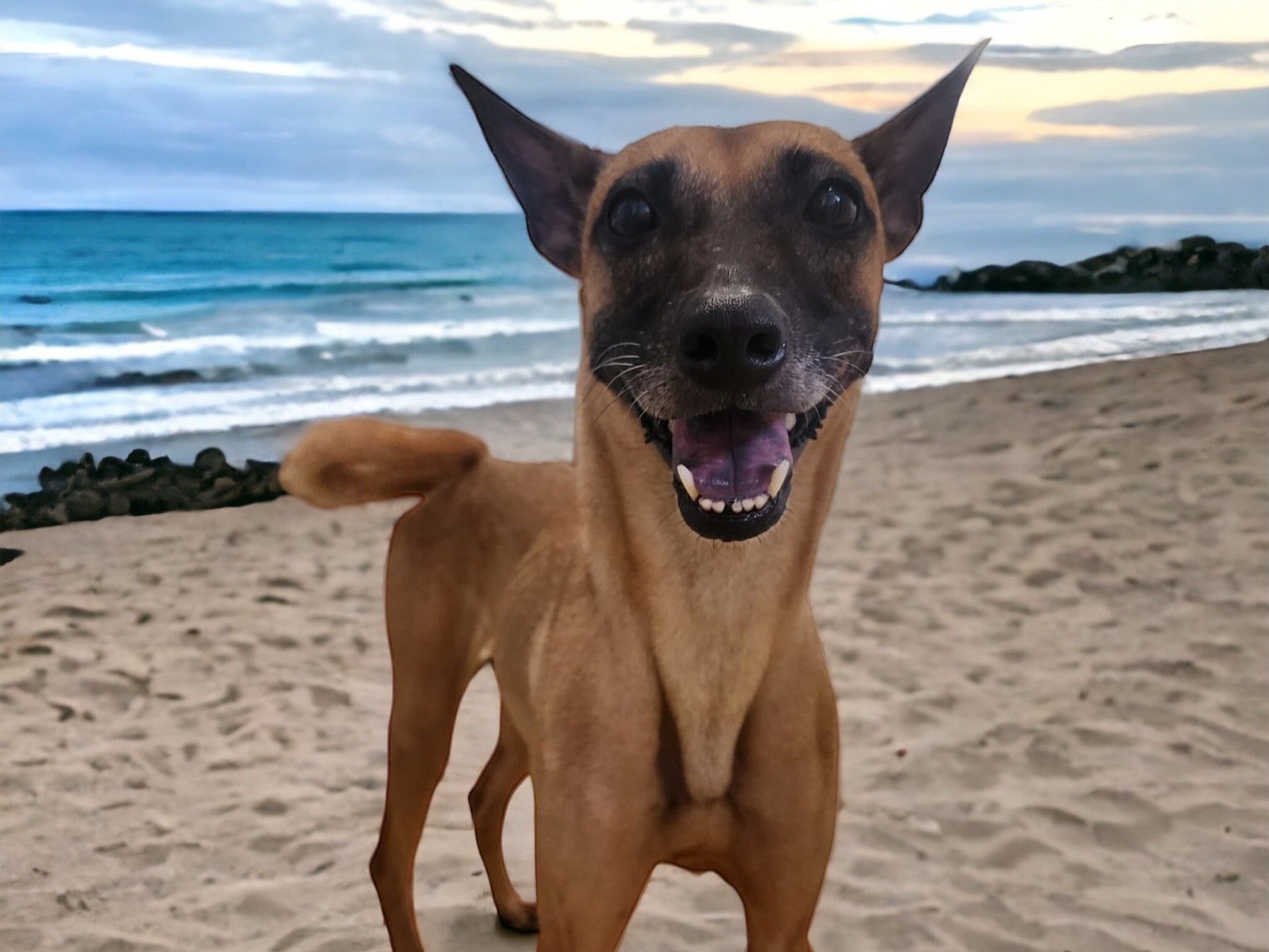Ready to adopt a dog in Singapore? Here’s what you need to know!
Our beloved Balloon, who’s looking for her forever fam!
Find out about the costs, time needed, regulations and how to set up a suitable environment for your new family member.
Before any aspiring dog parent begins their adoption journey, there are 3 categories of things that would need to be considered carefully:
Singapore’s regulations around dog ownership
Costs involved in having a dog for life
Time and lifestyle changes involved
All of these will require you to make significant changes to your routine, habits, and budget, in order to give your furry best friend a wonderful life. Find out more below!
Rules and regulations for dog ownership
What dog breeds are allowed in my home?
Private property (non-HDB residential or commercial) owners are allowed to keep up to a maximum of 3 dogs at their premises. Only 1 specified dog [2] can be licensed and kept in each private premise, subjected to additional licensing conditions.
If you are a HDB dweller, you may keep only 1 HDB-approved dog at any one time. These are usually smaller breed dogs, but special exceptions are made for Singapore Specials! Intended to give the larger, disadvantaged local mixed-breed dogs a higher chance of adoption, Project ADORE provides a legal route for HDB owners to adopt Singapore Specials up to 55cm in height.
(By the way, all our dogs at Metta Cats & Dogs Sanctuary are eligible for adoption under Project ADORE!)
Your dog needs a license!
All pet dogs in Singapore must be licensed, under the Animals and Birds (Dog Licensing and Control) Rules. This helps to facilitate tracing in the event of outbreak of diseases like rabies.
You can get a licence for your dog by applying through the Dog Licensing E-Service with their SingPass. Here’s a handy step-by-step guide to licensing your dog!
https://www.nparks.gov.sg/avs/pets/owning-a-pet/licensing-a-pet/dog-licensing-e-services
Mida girl, seeking a long-term foster or even better, an adopter!
Costs involved in dog ownership
Potential adopters are usually worried about how much it will cost to adopt and give good quality care for a dog. Here’s a list of some common expenses:
One time costs
Adoption fees
Adoption fees vary from shelter to shelter. At Mettacats & Dogs Sanctuary, our fee is S$100 for the adoption of a dog. The money goes towards the care of the remaining dogs at the shelter.
Microchipping
is mandatory for all pet dogs! Owners would need to microchip and register their animals with Animal Veterinary Service (AVS). If your pet gets lost or stolen, the microchip helps to identify the dog easily. A microchip can cost about S$50-$100.
Dog licensing
Licensing your dog is required by law, and costs range from S$15 to S$460.
Sterilisation
Sterilising your dog is highly encouraged as it reduces the risk of certain diseases and behavioural issues. Which means your dog gets to live a longer, healthier & happier life!
A one-time sterilization procedure can cost from S$350-S$850, excluding pre-surgery tests and post-surgery medications.
Training
Training for your dog is highly recommended, and is mandatory for adoptions under Project ADORE. Training reinforces good behaviour and builds confidence in both the pup and the owner. Remember to select certified trainers who use force-free methods and positive reinforcement, or ask the shelter you adopt from for recommendations. Costs can range from S$100 onwards.
Lifetime costs
Food!
Food costs vary depending on the size, age and dietary requirements of your dog. At Mettacats & Dogs Sanctuary, we spend around S$320 a month on food, supplements and treats for each dog. (Want to help sponsor one of our dogs? Click here!)
Vaccinations
Vaccinations protect our dogs from serious infectious diseases. Puppies would require booster shots more regularly, while an adult dog will typically need yearly vaccinations. Basic vaccinations can range from S$50-S$100. Read more about vaccinations here.
Healthcare costs
We strongly encourage pet owners to bring their dogs for regular vet checks, including dental examination. While once a year is usually sufficient for healthy pups, dogs with medical conditions will require more frequent visits. Basic vet consult fees range from S$30-S$80 per visit, with extra costs for medications, blood tests and procedures.
Flea, tick and heartworm prevention
These are usually given once a month and protect against harmful bacteria and life-threatening illnesses transmitted by parasites. Preventatives cost approximately S$20-S$30 a month, based on the dog’s weight.
Grooming costs
Basic grooming (includes bathing, fur trimming, nail clipping, ear cleaning) costs approximately S$45-S$120 depending on the dog’s size. Dogs with long, thick fur generally require grooming every 4-6 weeks, while those with shorter fur may only need to be groomed every 8-12 weeks. Or learn to do it yourself and save costs - it’s a bonding opportunity with your dog too!
Other pet supplies
These costs really depend on how much you want to pamper your pup! Potential costs include treats, supplements, feeding bowls, beds, toys, harnesses, leashes, ID tags, etc.
Time and lifestyle changes involved
How much time do I need to spend with my dog?
Different dogs require varying amount of time and attention, based on their individual needs (e.g. personality, age, health). If you are adopting from a shelter, they will generally be able to recommend you a pup that is more suitable for your lifestyle.
At minimum, all dogs will need regular toilet breaks, exercise and mental stimulation. We recommend bringing your dog for a walk at least twice a day, and if possible more frequently if your dog is outdoor-trained for toileting – holding urine for too long can increase the risk of urinary tract infection.
When you plan to adopt a dog, be prepared to make changes to your existing schedule. Sometimes you may need to postpone social outings or errands to get home in time. And after a long day at work, you may be drained but do try to spend quality time with your dog – like providing your full attention and limiting your phone use when taking them for walks!
Your dog will be your best friend, loving companion and basically a member of your family. So how much time then? The short answer is: as much as possible!
How about home environment?
This is also an area which many potential adopters ask about. If you are adopting from a shelter, your home will usually be inspected as part of the adoption process, and recommendations will be provided to make your home more dog friendly.
Have a dedicated space for your dog
Designate a specific area or room for your dog with their bed, toys, and water bowl. This gives them a safe, comfortable place to retreat and rest.
Ensure this space is at a comfortable temperature and free from hazards such as breakable items.
Dog-proofing
Ensure gaps of window and door grilles are small enough to prevent your dog from slipping through. Otherwise, consider using window limiters or secure meshes. If you stay in a landed property, make sure your fences are high enough to prevent escape!
Use baby gates to restrict access to areas that you don’t want your dog to go to.
Ensure trash cans are covered to prevent scavenging.
Keep hazardous materials, such as wires, cables, breakable items, cleaning supplies and certain plants, out of reach. Do google for dog-safe plants!
Choose pet-friendly furniture materials that are durable and easy to clean, like leather or tightly woven fabrics. Furniture covers that are washable for easier maintenance are your best bet!
Be careful of pools and ponds – your pup should not be accessing these areas without supervision.
Now that you have a clearer picture, you can decide if you are ready to welcome a new canine companion into your life. Remember, adoption is not just about providing a home for a dog, but also about integrating them into your life and ensuring their happiness and health in the long term. It’s a commitment, but also a rewarding journey that can bring about mutual joy and companionship!
Written by:
Loh Zi En Chantel and Dylan Cheng Bing Xuan
Eunoia Junior College Service Learning Club & MCDS volunteers



